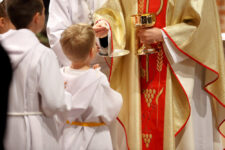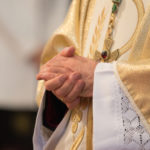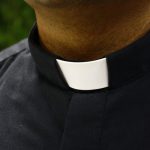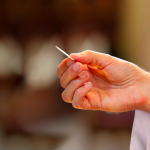Queensland to Force Priests to Report Child Sexual Abuse

Queensland has just passed news law which makes it a crime for priests to fail to report incidents of child sexual abuse.
Under the new laws, religious institutions and their members are no longer able to use the sanctity of confession as a defence against failing to report material information about the sexual abuse of children.
Those who fail or neglect to report such conduct will be liable to a maximum penalty of three years in prison.
Significantly, the new laws will apply to information received in the past – with victims’ groups hopeful that incidents of historical sexual abuse will come to light.
The Royal Commission
Breaking the power and secrecy of the ‘confessional’ seal’ – which in the Catholic religion prohibits priests from reporting incidents of abuse and gives them the power to ‘absolve’ those who have committed such acts – was a recommendation from the final report of the Royal Commission into Child Sex abuse.
The commission heard 4,444 allegations of child sexual abuse within the Catholic Church, involving around 1800 priests and church figureheads.
The Catholic Church fights back
However, the Catholic Church has fought back against the laws, with some Priests openly stating they would rather go to prison than break the confessional seal.
Many hope that the lifting of the Church’s veil of secrecy will facilitate justice for victims, and also enable access to previously inaccessible Church records.
The secrecy of the Church has often frustrated investigators and victims alike. An example of this is the police investigation into Catholic Priest Vincent Ryan, who was recently released from prison after spending time for child sexual abuse offences. When Police first began investigating the Priest in the early 1980s, their efforts were largely thwarted by the Church’s reliance on secrecy to cover-up his abuse.
Evidence presented in that case strongly suggested that the Church knew about Ryan’s crimes and actively covered them up, by moving him to other parishes parish, ostracising and threatening the families of children who spoke out, sometimes even offering ‘hush’ money to victims so they would keep the abuse a secret, and even promoting the Priest.
Similar evidence was presented against notorious child sex offender Gerard Risdale, also a former Catholic Priest, who was ultimately convicted of child sexual assault and indecent assault charges against 65 children, aged as young as four years.
Confessions remain protected In New South Wales
States and Territories around Australia were left to make their own decisions about how to implement recommendations from the Royal Commission.
The ACT and South Australia both acted swiftly and introduced laws by early 2019, compelling Priests to disclose information about child sexual abuse.
New South Wales, however, has decided not to tackle the issue specifically, and instead enacted broader ‘failure to report’ legislation.
However, despite introducing both the offences of concealing child sexual abuse (316A of the Crimes Act 1900) which carries a maximum penalty of two years in prison and a general ‘failure to protect’ offence (Section 43B Crimes Act 1900) which prescribes the same maximum penalty for those undertaking child-related work who fail to remove or reduce the risk of child sexual abuse risk, Priests in New South Wales remain exempt from such reporting.
Protection under the Evidence Act 1995 (NSW)
In that regard, section 127 of the Evidence Act provides that:
‘A person who is or was a member of the clergy of any church or religious denomination is entitled to refuse to divulge that a religious confession was made, or the contents of a religious confession made, to the person when a member of the clergy.’
And while NSW Premier Gladys Berejiklian promised in early 2018 to protect children against sexual abuse and ensure offenders face justice, it seems she is unwilling to take action against the Catholic Church.








